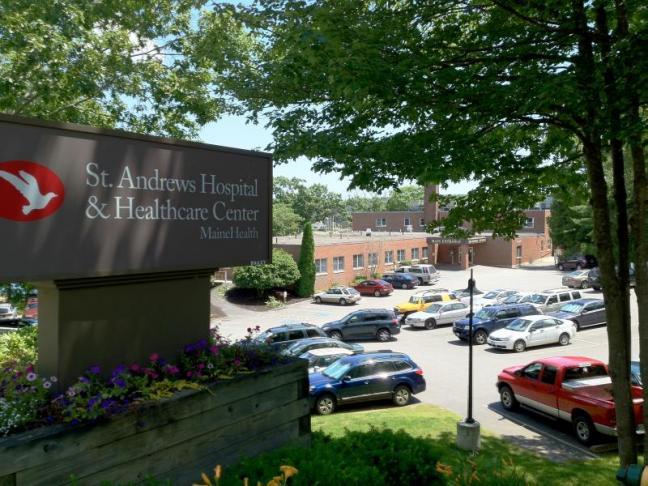Where are we going?
While some are trying to figure out how to take over or maintain the status quo at St. Andrews Hospital, Lincoln County Healthcare has made it clear they are are not interested in vacating their responsibility for local healthcare. They say they have a plan and they are sticking to it. So far we have heard more about what they will no longer be doing than what they plan to continue and emphasize.
We still don't know the details of what care in Lincoln County will look like in the years ahead, but Lincoln County Healthcare’s Board of Trustees developed a strategic plan in 2009 that focuses on providing “world class ambulatory care and senior living” and recognizes the national healthcare goals of improving quality and access for patients while reducing costs.
The trustees hired Navigant, an independent specialty consulting firm, earlier this year to help them understand both local and national healthcare trends and to plan for the future.
That effort led them to their current approach, one that focuses on primary and outpatient wellness care rather than hospital care. “We know that the future of healthcare in this county is based on very strong primary care and that’s where we are putting our resources,” Lincoln County Chief Medical Officer Dr. Russ Mack told local legislators on August 3. Mack said continuing to funnel resources into the hospital system might earn the hospital more revenues but was not in the best interest of patients.
Lincoln County CEO Jim Donovan said while inpatient and outpatient programs at both hospitals have declined, demand for home health, hospice, wellness and rehabilitation care has increased. “We are seeing a shift in need from hospital to ambulatory care,” Donovan said. Ambulatory care refers to care that a patient receives in a doctor’s office, hospital or clinic that does not require hospital stay.
Shifting healthcare away from the hospital to the home setting has been shown to benefit patients, Lincoln County Medical Partners Director Dr. Mark Fourre said. “As we study more and more, we are finding that people do better at home. There is something about being in the hospital bed that isn’t good. We are learning that over and over again.”
Donovan said Lincoln County Healthcare’s commitment to senior living will continue to be “huge.” “The demographics of Lincoln County will require us to increase resources for seniors,” Donovan said.
Lincoln County Healthcare, along with other members of MaineHealth, has begun the process of incorporating the principles of the “patient centered medical home” to local primary care. The patient centered model provides for a team approach to patient care, gives patients improved access to, and communication with, doctors and other healthcare providers and has been shown to result in better patient outcomes at lower cost. The focus is on keeping people well and out of hospitals through regular consultation.
Healthcare focused on patient outcomes
Maine Health Access Foundation CEO Dr. Wendy Wolf summarized the national shift in healthcare from “quantity-based to quality based.” Wolf, a pediatric cardiologist who also holds a master’sa degree in public health from Harvard School of Public Health, has more than two decades of clinical, academic and research experience and has served as a senior advisor to the U.S. Department of Health and Human Services. The Boothbay Harbor resident is a nationally-recognized speaker on healthcare policy.
“Now, the more we do, the more we get paid. Whether it’s good for the patient or not,” Wolf said. “The goal is to change healthcare payment systems so healthcare providers are paid for patient outcomes rather than units of service.”
Under the current system, Wolf explained, a hospital would make more money for a patient who had an appendectomy and then had to be readmitted to the hospital because of a subsequent wound infection. Under the evolving system, the hospital would not get paid more for the wound infection, which should have been preventable with appropriate care, and might even get paid less.
Wolf acknowledged that how this healthcare overhaul will play out over time is still uncertain but said the change in incentive should help shift the focus back to patient care.
Donovan said Lincoln County Healthcare’s current plan, centered on primary care and wellness, is intended to position it for this next evolution in healthcare. “I think we are definitely on the right track,” Donovan said.
The future of healthcare in the U.S. is incredibly complicated and a topic of active national debate. As the St. Andrews Hospital story unfolds, we will be exploring in greater detail what those changes mean to healthcare here in the Boothbay Region.
For more on changes at St. Andrews, read the rest of our series:
Part III, Hospital decisions explained
Part IV, Hospital transition begins
Part V, Ambulance service plans for ER closing
Part VII, Where are we going?
For the story told through community response, visit our Storify
Address
United States


























